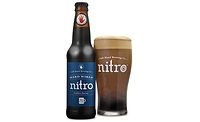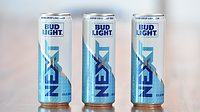Cover Feature
Beverage brands rally to support recovery of on-premise channel
On-premise specific packaging, new entries could lift channel

When Shohei Ohtani first entered MLB in 2018, many were billing the Los Angeles Angels’ pitcher as the next Babe Ruth thanks to his dual threat on the mound and at the plate. However, after undergoing Tommy John surgery, a knee injury and a condensed 2020 season, Ohtani’s dual threat has been minimized. This year, the Japanese player is putting those whispers to rest. According to a fivethirtyeight.com report published May 24, Ohtani ranks 10th among most valuable by wins above replacement and No. 1 as most valuable by win probability added. It might have taken him longer to reach this status than originally thought, but Ohtani’s journey has brought him to being a recognizable star in MLB.
For the U.S. on-premise market, the pandemic last year was the equivalent to a season-ending injury as it forced many operations to shut their doors ― some temporary, but some permanent. Although it has been a difficult 15 months for the channel, beverage-makers are stepping up to support the on-premise channel as it looks to rebuild.
Lara Krug, vice president of marketing for Stella Artois, a brand of St. Louis-based Anheuser-Busch, explains how far-reaching the pandemic’s impact on bars and restaurants has become.
“[W]e know in general that the impact of the pandemic had and continues to have to bars and restaurants continues to have been huge,” she says. “I believe more than 80 percent of restaurants across the country are warning that they’re still at risk of closure, and obviously thousands of them have closed over the last year. It obviously has hit nationwide, it obviously hit even harder in some of the big cities, so something that as a personal effort, it’s incredibly important for us and to me that those come back.”
Krug notes that the soul of the Stella brand lives within the on-premise community and, as such, the brand and its parent company stepped up early on to help its partners.
“Since last year, we immediately partnered with The James Beard Foundation to really make sure that all of our programs and messaging and platforms were built to allow for consumers as well as, of course, our brand to support the on-premise,” she says. “At first it was around some of the initial stages of the restaurants: making sure they had money and grants to stay open and support their staff. And there’s different ways along the way as they’ve reopened.
“We’ve done programs where we did our sessions at home, where we brought amazing chefs from around the country online to a virtual platform to [prepare] meals that [show that] consumers could still enjoy a restaurant-quality meal in their home while giving back to the foundation,” Krug continues. “Then, we pivoted in the fall and winter by providing outdoor dining solutions for my restaurants and bars throughout the U.S., particularly in Chicago, and we did an activation in Harlem as well.”
Recently, though, the Stella brand is taking the necessary steps to support the rebuilding process that on-premise operators are eager to roll out.

Image courtesy of Anheuser-Busch
Once again in partnership with The James Beard Foundation, in late April Stella Artois released its Open For Good bottle, an aluminum bottle that will contribute a portion of the proceeds to helping the restaurant industry. Named after the foundation’s Open For Good campaign, Stella Artois new Open For Good aluminum bottle also gives consumers the chance to help rebuild the restaurant industry. The bottle also features custom QR code technology, a Stella Artois U.S. innovation, to further recognize and support local restaurants, according to the company.
“[W]e are so excited, we were able to find a way by creating the first-ever bottle ― an aluminum bottle, specifically ― that is built for helping the restaurant industry with Stella Artois,” Krug explains. “The Stella Artois aluminum bottle, which we’re calling [the] Open For Good bottle is now a way that consumers can enjoy a delicious cold Stella, and with every purchase of one of those, we will be donating a portion of the bottles sold back to The James Beard Foundation Open For Good relief campaign. For us, that’s just one additional big milestone for us, but much to come in terms of our effort in doing everything we can as a brand that’s built for consumers to come together to support the on-premise moving forward.”
Released June 7, the Open for Good bottles are a part of Stella Artois’ upcoming campaign, Your Table Is Ready, which is dedicated to bringing people back to restaurant tables.
“[W]e were inspired by the line that everyone is missing for the hostess to say, which is ‘your table is ready,’” Krug says. “It’s four words that many people have not heard in a long time and something I know the industry is hopeful to get people to say again.
“We were inspired by this emotion that your table is ready and when that comes to life, so we are building on this idea inviting, engaging and rewarding consumers to go back to restaurants and bars safely as cities open,” she continues. “One of those big pillars was to go beyond just traditional TV assets or traditional marketing pieces and really put something physically in consumers’ hands to do that, and that’s where the inspiration came for us to create a new SKU for Stella doing it as a 14-ounce aluminum bottle ― something we’ve never been able to do before.”
Another key factor in the roll out of the Open For Good bottle has been the rallying cry from the wholesale community. Leah Patterson, marketing manager for Orlando, Fla.-based City Beverages, highlights the eagerness the wholesaler had when it learned about the bottle and marketing initiative.
“We were incredibly excited to learn and join forces with Stella Artois for this offering, especially after hearing from so many of our accounts on how much they’re still struggling to rebuild after the year we had in 2020,” she says. “Even with some on-premise accounts operating close to full capacity, the damage that was absorbed from the pandemic has lasting effects in the bar and restaurant industry. Stella Artois focusing on providing aid to the industry is what’s needed right now. It gives us a way to help uplift spirits for our accounts.”
Patterson notes that City Beverages has made getting the Open For Good bottle to as many accounts as possible a top priority. “We saw value in what this bottle represented; beyond the donation, it served as a symbol of hope, an energy that we’ve been craving for a long time now,” she says.
With the bottle’s national launch June 7, Patterson explains that early reviews from the on-premise community have been positive as many expect the bottle will be an exciting option for consumers this summer.
“Talks about the bottle’s design were equally positive, with many noting how beautiful and premium it looks and feels,” she says. “We know customers have remained dedicated to supporting their favorite local eateries and can anticipate them to continue to do so in a new way by purchasing these bottles. Customers will be able to give back while enjoying a nice cold Stella in the process ― a win-win for this summer.”
Spirited support
Spirits manufacturers also have experienced the fallout from the pandemic within the on-premise market.
“In the beginning, COVID significantly slowed down on-premise in the U.S. market, a channel where we over-index the category,” says John Barrett, chief commercial officer at Pernod Ricard North America, New York. “Restaurants and bars faced closures ― temporarily or permanently ― over the past year due to the pandemic. As a critical part of our industry, this posed a huge challenge for our industry as a whole.”
Recognizing the effects from the pandemic throughout the on-premise channel, Pernod Ricard mobilized to help support its partners.

Image courtesy of Pernod Ricard
“In response to the early days of the pandemic, Jameson donated $500,000 toward the United States Bartenders’ Guild, an organization that provides aid to individuals in the bar community knowing that the road ahead would be hard for members,” Barrett says. “As the pandemic continued on, in June 2020 Pernod Ricard also launched a free online learning platform ― ‘Bar World of Tomorrow’ ― for the spirits industry in collaboration with the United Nations’ Educate All platform.

Image courtesy of Mike’s Hard Lemonade Co.
“The initiative was aimed at democratizing learning in the spirits industry, with a focus on sustainable and responsible bartending practices,” he continues. “In the U.S., we offered free access to our BarSmarts and BarStarts programs free of charge to out of work trade. 25,000-plus individuals signed up globally.”
This past holiday season, Pernod Ricard North America, which is inclusive to the United States and Canada, contributed $300,000 to support the bartending community. “The grant was a joint effort between U.S. affiliate Pernod Ricard USA and Canadian affiliate Corby Spirit and Wine Limited with the Restaurant Workers' Community Foundation and the Bartenders Benevolent Fund,” Barrett explains.
In March, Jameson Irish Whiskey once again reaffirmed its commitment to the restaurant community with a $150,000 donation as well as $50,000 on behalf of Pernod Ricard USA in honor of St Patrick's Time Off (SPTO) pledges to the Restaurant Workers Community Fund.
“Supporting local bars and restaurants to create convivial moments and connections is at the core of everything that we do,” Barrett says. “They are the backbone of our industry. We are proud to have been able to support our community during these unprecedented times.”
As more states and locales open up, Barrett adds that Pernod Ricard will continue to support its community of restaurants and bars.
“We’re making sure that we support outlets as consumers return to the channel,” he says. “That includes ensuring availability of our core brands, and talking to outlets about how we can get consumers excited about the return to their favorite bars and restaurants. Human beings crave connection so we believe consumers will be eager to return to bars and clubs as it becomes increasingly safer to do so.”
Within the on-premise community, traditional social holidays (St. Patrick’s Day, Cinco de Mayo, etc.) have been entwined in the community. This has presented opportunities for brand owners to rally around the channel during these unprecedented times.
Leading up to Cinco de Mayo, Tequila Don Julio, a brand of Diageo North America, New York, announced the creation of The Tequila Don Julio Fund, a fund that will commit $1 million in aid during the next four years to charities whose missions help its community grow stronger.
This year, the fund made its first contribution on Cinco de Mayo through a combined donation of $125,000 that will be distributed to two charities: No Us Without You LA, a nonprofit organization that provides food security for Mexican hospitality workers in the greater Los Angeles area; and Restaurant Workers' Community Foundation, an advocacy and action nonprofit created by and for restaurant workers.
In an online sweepstakes and real-world instant win game promotions, Tequila Don Julio released $125,000 worth of "Don Julio Cincos," digital and physical vouchers. Each one unlocks $5 that consumers were encouraged to spend at a local bar or restaurant of their choice on Cinco de Mayo.
“Tequila Don Julio is a brand rooted in devotion and committed to those we call our familia,” said Christina Choi, senior vice president of tequila at Diageo North America, in a statement. “Every day we aim to emulate the values of our founder by serving, supporting and celebrating the people who made Tequila Don Julio the brand it is today. This Cinco de Mayo, beyond our donation to two amazing nonprofits supporting hospitality workers, we hope to also inspire people to support their favorite bars and restaurants themselves.”
New life
As the on-premise community continues its rebuilding efforts, many might look to the hottest segment in beverage alcohol: hard seltzers.
“[L]ast summer was really a super great growth time for hard seltzer and it’s managed to retain most of that momentum through the winter,” says Jim Watson, senior beverage analyst at Rabobank, New York. “We have started to see more seasonality in the sales so skewing more to the summer than the overall year category, which itself is geared toward warmer months and sales.”
With summer days away and the continued growth of hard seltzers ever present, the introduction of the segment to boost on-premise suggests potential. However, Watson notes there are some nuances that could minimize its positive impact.
“I think there’s a lot of potential there, but it is relatively tricky,” he says. “The biggest challenge is there isn’t any actual draft capability within the entire hard seltzer space.”
Because of this factor, hard seltzers will miss out on potentially 40-60% of total volume ― depending on which sector of on-premise a brand is analyzing.
“That becomes a huge challenge but what I think will end up happening is it will at the very least be able to capture their appropriate share within the canned, non-draft part of that portfolio,” Watson says. “Right [now], seltzers are roughly 8% of total beer volume, so at the very least, they could be 8% of the non-draft volume of the on-premise side. I think there’s room for them to do a little better than that, being that there will be some people that come in and are seltzer drinkers, and will skip a draft just to get a seltzer in a can.”
What also bodes well for hard seltzers during on-premise’s rebuilding efforts is that the alcohol segment is relatively new as it was emerging in 2019, and much of 2020 was lost because of the pandemic.
“In terms of drawing people back out to the on-premise, all of a sudden you’re going to have a totally new offering available to them that was never really an on-premise offering,” Watson explains. “You might be able to have new flavors, and it may be what seltzers have always done for beer and the alcohol category; it’s a little bit more inclusive. So, if you have these seltzers in your portfolio, you may be able to bring in a more diverse group to drink that day because now you’ve got something for everyone in the group in a way that you didn’t with a pure beer portfolio.”
Watson adds that brands that already have robust on-premise connection through their parent companies (Bud Light Seltzer and Michelob ULTRA Organic with Anheuser-Busch, Topo Chico Hard Seltzer with Molson Coors, and Truly Hard Seltzer with The Boston Beer Co.) likely will be able to effectively mobilize those accounts. Although White Claw Hard Seltzer’s parent company, Mike’s Hard Lemonade Co., has a stronger off-premise business, Watson notes that its position as the most popular brand in the space will open up opportunities within on-premise.
Hope for the future
As summer heats up, many throughout the beverage market are hoping that rebuilding for the on-premise channel will follow suit. For beverage-makers supporting its partners, a sense of optimism can be found.
“If this pandemic has taught us one thing, it is how resilient our community is,” Pernod Ricard’s Barrett says. “We all took note of how quickly and successfully bars and restaurants pivoted to outdoor dining, providing warmth during the winter with heated lamps and patio enclosures, and were met with consumers lining up to enjoy moments of true human connection with their friends and family.
“We call these moments of connection, conviviality, at Pernod Ricard,” he continues. “While human connection was definitely challenged this year, we’ve managed to safely reinvent how we would offer these moments despite every obstacle thrown our way. As we look to the future, we remain optimistic that our industry can and will get through this and that is because of you. We’ll continue to stand with you and support you, and I know that we will be back stronger than ever before.”
Stella Artois’ Krug also highlights the importance of connection and community as the channel moves forward.
“I personally am looking forward to getting back together with friends and family over a meal with a cold Stella,” she says. “I think we know how challenging it has been but there seems to be so much to look forward to. I think the collaboration with the city with brands like ours from Stella Artois with our company at Anheuser-Busch as part of a larger campaign of Let’s Grab a Beer Safely and Together.
“I think there’s just a lot of momentum to come back safely, come back better, and so I think it will all begin to line up really well and I think that consumers and Stella fans will certainly be very eager to return to local bars and restaurants this summer, and especially as the weather gets warmer, it seems to be happening everywhere right now,” she concludes.
Looking for a reprint of this article?
From high-res PDFs to custom plaques, order your copy today!






